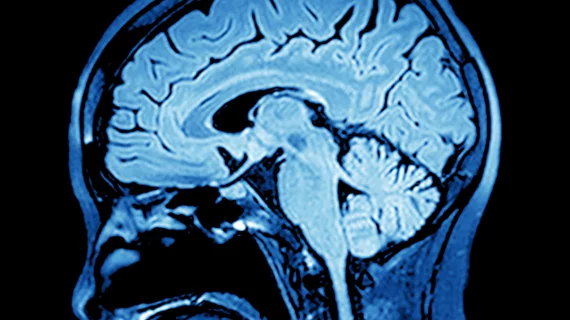NIH grants $3.5 million toward researching COVID's neurological impact
As the science community has answered some of the most pertinent questions pertaining to the acute nature of COVID-19, research into how the respiratory virus impacts patients in the long-term is on the horizon.
The Albert Einstein College of Medicine will be the latest to tackle these long-term effects after receiving a fresh batch of funding in the form of a $3.5 million grant from the National Institutes of Health, according to an announcement made by the college. The funds will be allocated specifically toward neuroimaging and cognitive and immunological tests to explore if and how mild and asymptomatic SARS-CoV-2 infections have a long-lasting impact on neurocognitive function.
“It’s well-accepted that the brain is affected by the novel coronavirus, but most studies on long COVID have focused on older people who have had severe disease,” said Michael L. Lipton, MD, PhD, co-principal investigator on the grant and associate professor in the Dominick P. Purpura Department of Neuroscience at Einstein. “Our study is different because we have access to pre-pandemic brain imaging and in-depth cognitive assessments from hundreds of previously healthy, racially and ethnically diverse young men and women in their 20s and 30s who have participated in other Einstein studies.”
Lipton, who is also associate director of Einstein’s Gruss Magnetic Resonance Research Center, shared that 140 participants in the research will have their baseline results from imaging and other cognitive function tests compared to updated MRI scans, cognitive and psychiatric assessments and bloodwork post-COVID infection (a control group of uninfected individuals will be included as well).
The research is set to last for three years, and in addition to exploring how the infections themselves may have altered patients’ cognitive function, experts will also analyze whether the stress of the pandemic played a role in any observed brain alterations, regardless of whether someone was infected at any point or not.
“SARS-CoV-2 infection may negatively affect current brain functioning and presage future neurodegeneration and dysfunction,” Lipton said. “Understanding the mechanisms and potentially developing targeted treatment could head off future problems.”
For more information, click here.
Related long COVID articles:
PET scans spot brain abnormalities in long COVID patients
Specialized CT protocol reveals small airways disease in COVID long haulers
New imaging technique detects post-COVID lung abnormalities
MRI scans show COVID's 'significant' impact on the brain

